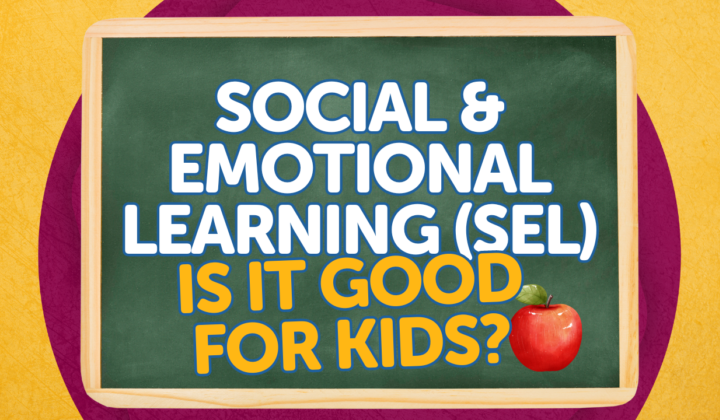Learn more about the journey that led to us equipping kids to carefully evaluate every idea they encounter.
Meet members of our team who have contributed to curriculum development.
Hear from real users of the Foundation Curriculum.
Learn what we believe about God, Jesus, Scripture, and more.
Seeking Biblical Mental Health Support for Kids
Seeking a mental health provider for your child? In today’s episode, we tackle the tough question of how to find a counselor who doesn’t just claim faith, but practices from a biblical worldview. Listen in as we discuss practical questions to ask and key factors to consider to ensure your child receives guidance that aligns with God’s truth.
Transcript
Note: The following is an auto-transcript of the podcast recording.
Hello, friends. Today's podcast question says, "it has been so difficult to find a mental healthcare provider for our son that is a Christian and has a solid biblical worldview. What questions should we ask when seeking potential providers? Surprisingly, our church had no recommendations." Well, this is an important question for us to think through because I know there are so many Christian parents who are seeking mental healthcare providers for children, and we need to ensure that if we are having our child go to seek a mental healthcare provider, that this person not only claims the name of Christ, but that they view the world and their practice through a biblical worldview. So how do we do this? Well, that's what we're going to dive down deep into today on the Foundation Worldview Podcast where we seek to answer your questions so that you can equip the children that God has placed in your care to carefully evaluate every idea they encounter and understand the truth of the biblical worldview. I'm your host, Elizabeth Urbanowicz, and I'm thrilled that you've joined me for this episode today.
Now, just as a little bit of a caveat starting off, mental health care is not my specialty. This is not an area of specialty for me, so please take what I say with a grain of salt. I think that I'm going to hopefully provide you with some wise counsel, but please do take it with a grain of salt and talk to the elders at your church. Now, the person who wrote this in said, surprisingly, the church had no recommendations. So if your elders at your church do not have recommendations, would also encourage you to seek out counsel from wise, mature believers in your life.
Now, my first recommendation to any parent who is seeking mental health care for their child would be to ensure that the mental health issues that your child is facing are not caused by factors you can control. Now, I'm assuming that most people who are seeking out mental healthcare professionals have already fought through most of these things. However, if you haven't, it's important to think through are some of these issues being caused by factors that are in your control? For example, diet. Is your child eating a healthy balanced diet or are they consuming lots of junk food or even just lots of processed food things with lots of dyes? All of these things, processed food, unbalanced diet in an unhealthy amount of sugar or dyes can all greatly impact the physical health and the mental and emotional health of children. Also, sleep. Is your child getting a sufficient amount of sleep? Often a mistake that adults make is thinking that children need the same amount of sleep as adults. This is simply not true. Most children need between 10 and 12 hours of sleep a day, and so well actually a night preferably rather than during the day. But ensuring that our children are getting enough sleep is key. Also, thinking through screen time, how much time are our children on screens? Now, with the research that I have done that has just been come in over the past five years specifically, I am thoroughly convinced that no child under the age of 16 should ever have a smartphone or be on social media. Just with the trends that researchers have found with smartphone use and social media use leading to increased risks of depression, it is not worth the risk. So if your child has her own smartphone and is under the age of 16, highly recommend you take that smartphone away. This also includes video gaming. Screen time includes video gaming, that really video gaming should be limited to no more than one hour per day. That when our children are on video games for long portions of the day, what's happening is we're actually creating chemical addictions in their mind. They're getting addicted to dopamine and regular life, things that are required for healthy child development. Things that are required for healthy adult functioning just seem boring, uninteresting, children become depressed, they become angry, they become aggressive. Also with screen time, screen time should always be done as a family, that it should be a family watching something together or even if not all of the family members are present, it should be something that is done in a common area like the living room or the kitchen or the family room. Screen time should never be done in bedrooms, so this is something to check out. Is there healthy limits on your child's screen time? Also, what about church involvement? Are you involved in a church where there are other mature Christian men and women who are involved in your children's life, who are discipling them, who are modeling for them what it looks like to be a man or a woman who loves God? That God has designed us to live life in community? Yes, the family is the primary and the main vehicle through which that is done, but God has also called us into the family of God. Are you in a healthy church where your kids aren't just involved in a lot of programming, but there are actual other believers who outside of programming are involved in their lives? And then friendship. Are you fostering an environment in your home, in your community where like-minded families can get together and grow deep and intimate relationships? That even if you are intentional about limiting your child's screen time and not giving them a smartphone and not having them be on video games, most of the children in your child's sphere of influence are going to be impacted by screen time and by smartphones and by video games. And so actually making sure that we're intentional at helping our children develop positive relationships with others their age is something that is really key. So that would be my first recommendation. Just ensure that the mental health issues your child are walking through are not caused by factors that you can control.
My second recommendation is before you go and you seek out secular healthcare, seek out biblical counseling. Now, biblical counseling is different than psychology. That psychology is looking at just the secular study of the mind, looking at what different psychologists have theorized over the years and then putting those things into practice where biblical counseling is looking at what has God's word revealed about the human condition? What is the condition you are walking through right now? How does Scripture speak to that? So highly recommend that you seek out a biblical counselor first before you go to a clinical mental health care provider. If there is no biblical counseling in your area or you're not sure if the biblical counseling is sound, highly recommend you check out the website, BiblicalCounselingCenter.org. This is a biblical counseling center that is based in Wheaton, Illinois where I used to live. I actually have some friends who are counselors there. They do offer counseling over Zoom and they have very reasonable prices. So highly recommend you check out biblical counseling. If there's no biblical counselors or biblical counselors you trust in your area, go to BiblicalCounselingCenter.org. I know that it's a reputable practice.
Now, if you try to seek out biblical counseling and that doesn't work or you can't find a biblical counselor that would work with a child. If clinical mental health care is needed, this would also be needed in a situation like if you have a child who is dealing with a bipolar disorder or schizophrenia or something like that where medication is needed, a biblical counselor would not be licensed to prescribe medication. So that's where you would actually need a clinical mental healthcare provider. So if that is needed, seek out someone who is a Christian and then ask good questions.
So some questions that I would recommend that you ask just to figure out, is this someone who's actually stemming from a biblical worldview? Ask the mental healthcare provider. What will your role as a parent be in the counseling process? If this mental health care provider is truly stemming from a biblical worldview, they will want you closely involved in this process. Now, you might not be involved in every single counseling session, but they will want you there for some counseling sessions because they will view you as the primary disciple maker of your child and the person that God has primarily given responsibility over your child. Where the secular view is you just separate the child and the parent, the mental healthcare provider does all of this work with the child, and then the child goes out into the waiting room to meet the parents. That is not a biblical model. So ask what your role as the parent will be in the counseling process.
Then ask the mental healthcare provider what he or she thinks are the root causes of most mental health cases such as your child's. What do they believe are the root causes? And you're going to want to listen carefully to what they say. That someone stemming from a biblical worldview will know that there are some causes that are caused by chemical imbalances and deficiencies. There's other ones that are caused by different imbalances or physical issues. There are some that are caused by a mixture of physical issues and also spiritual issues, that there's a spiritual factor involved that sometimes there's also sin involved. You'll want to hear the counselor talk about all of these different things because secular clinical mental healthcare looks solely at physical causes for these things. Now, are there physical causes for mental health care issues? Yes, there are. We know as Christians that because of the fall of mankind, the ground is now cursed, and so we wrestle with these physical consequences of the fall and of the curse. But there are also spiritual factors that play into this. There are also sin factors that play into this, and so you're going to want a mental healthcare provider who views all of those things as important to look into.
Another question that you're going to want to ask is, what has this professional found most helpful? In treating cases such as your child's with other children, you're going to want to hear what kind of things has this mental health care provider suggested? And you're going to want to see does this align with something that you believe is biblical? Does this align with something that you think would be helpful for your child?
Another question that you're going to want to ask is, how does this mental healthcare provider approach therapy from a biblical worldview? Just ask them, how are they going to approach this from a biblical worldview? And just don't settle for a few Bible verses thrown at you like, this is done for the glory of God. Or like this is done under the guidance of God and his word. You are going to want to know how does their view of God impact what they do in counseling? How does their view of human nature impact what they do in counseling? How does their view of sin impact what they do in counseling? You want to know from a thorough perspective, how does this person view the biblical worldview impacting their profession? Because I can tell you from someone who has been involved in Christian higher ed for a while by being a student, by having friends who are faculty members and just by living near large Christian colleges, I can tell you that many times what happens at Christian universities where people are trained in professions, is the professors they get hired at these universities because they have a love for Jesus and a personal testimony, and they are never questioned or challenged on how should a biblical worldview impact the way they view that subject. And so therefore, a lot of professionals come out of these institutions and don't have a distinctly biblical view of that profession. And I can tell you, I was one of them. I graduated from a Christian college and I had wonderful education teachers, very sweet women who loved God and loved teaching, but they did not challenge me to think through how does my view of God, how does my view of humanity, how does my view of life, how does my view of morality, how does my view of sin, how does my view of the future things impact the way in which I structure the instruction I am giving my students? And so with a mental health care provider, it who's a Christian, it might be very similar. They might be to love Jesus. They might have a wonderful personal testimony, but they might never have thought about how a deeply held biblical worldview should inform the way that they practice mental healthcare.
If you're a family who has gone through our Biblical Worldview or our Comparative Worldview curriculums in those curriculums, you know that we go through five major components of a worldview. We look at truth, we look at God, we look at life, we look at humanity, and we look at morality and we investigate, okay, how does the Bible speak to these areas? If you've gone through those curriculums, think about the main points in each of the lessons and then ask questions of the mental healthcare provider that are based off of each of those five different components and those worldview categories, questions and components should be the foundation for you asking good questions. And that's one of the goals of these curriculums. For those of you who have used any of our curriculums, you know that we're seeking to educate your child alongside educating you. That we at Foundation Worldview, we had to study for many years to learn all of these things and to put them in a way that makes sense for children. And our goal is that as you're going through these things with your child, you are learning these things. So then you are able to ask these good questions when you encounter situations like this where you're looking for a mental health care provider, that you are more firmly equipped to ask good questions and to discern whether or not something is genuinely biblical.
So again, those would be my recommendations. First, ensure that the mental health issues are not caused by factors in your control. Two, seek out biblical counseling. Three, if biblical counseling is not available or is not what is needed, make sure that you seek out a mental health care provider who is a Christian, and then ask good biblical questions such as what your role as the parent will be in the process, what the root causes of most mental health cases such as your child's, what the professional has found most helpful in treating other cases, and then how their approach to therapy stems from a distinctly biblical worldview.
Well, it's my prayer that this has been helpful information for you as you seek to continue to disciple the children God has placed in your care. If you found the content of this podcast beneficial, please make sure to like and subscribe so you don't miss any future episodes. And if you have a question that you would like for me to answer on a future Foundation Worldview podcast, you can submit that by going to FoundationWorldview.com/podcast. As we leave our time together, my prayer for you is that no matter the situation in which you and the children God is placed in your care, find yourselves that you would trust that God is working all things together for your good. By using all things to conform you more into the image of His Son. I'll see you next time.
Related Posts and insights

God Made Me This Way: Justifying a Sinful Lifestyle
Today's question says, "Often in the media or in the mainstream world, we hear non-believers who latch onto this idea of the image of God and say, 'Well, I'm made in the image of God, so how can my lifestyle or any type of sin be wrong?' How do we talk to our kids about this?" Listen as Elizabeth Urbanowicz explores what it means to be created in God's image and our ability to sin.

Social & Emotional Learning (SEL): Is It Good for Kids?
In today's podcast, we look at the popular Social and Emotional Learning (SEL) curriculum that is rising in public and even private Christian schools. What is it? Is it biblical? And is it something our children should be involved in? Tune in for an in-depth look at Social and Emotional Learning.

Healthy Routines to Help Kids with Anxiety
Learn how to establish healthy routines at home that can help reduce anxiety in children. Explore strategies that support physical, emotional, and relational health for a peaceful family life.




